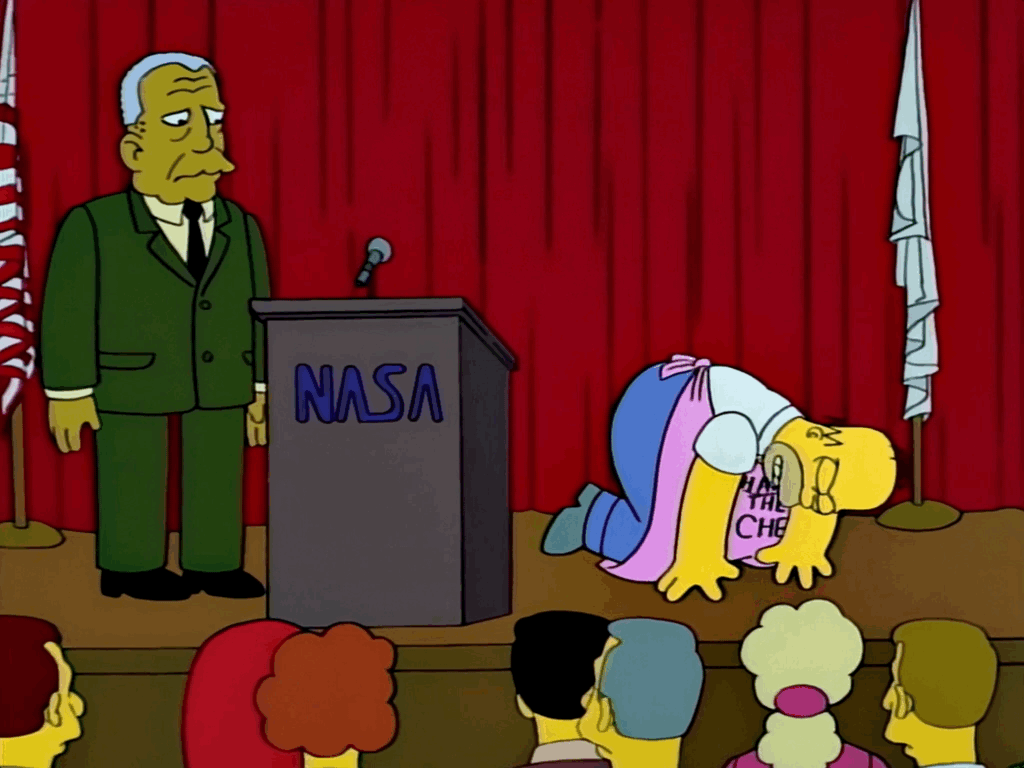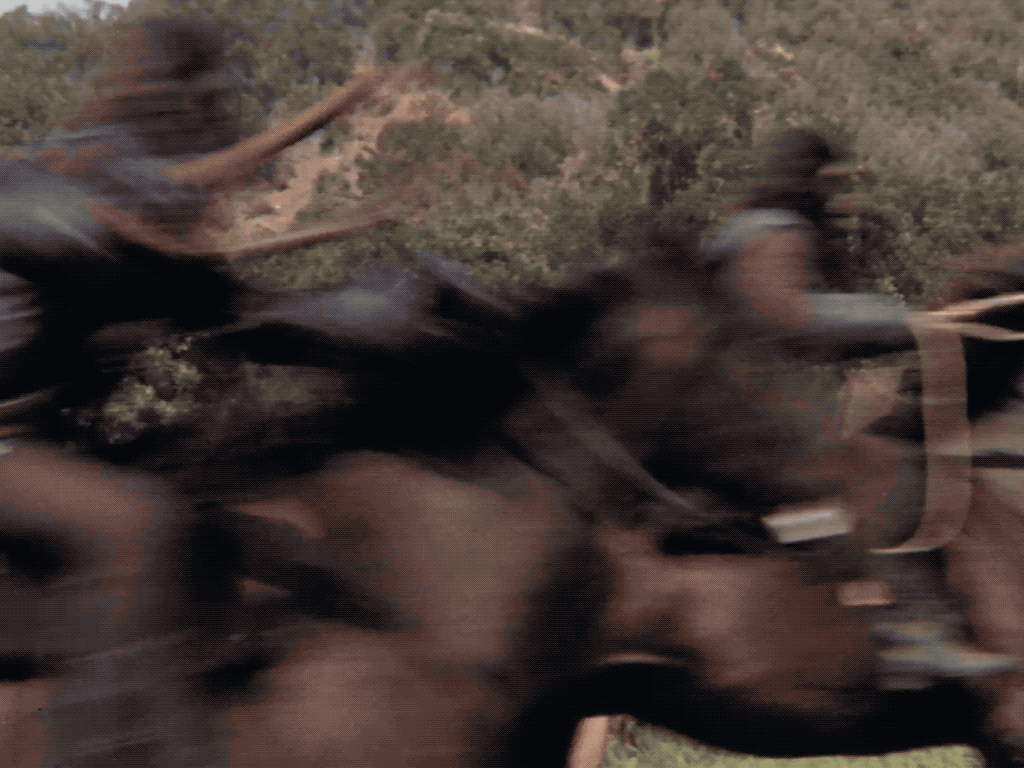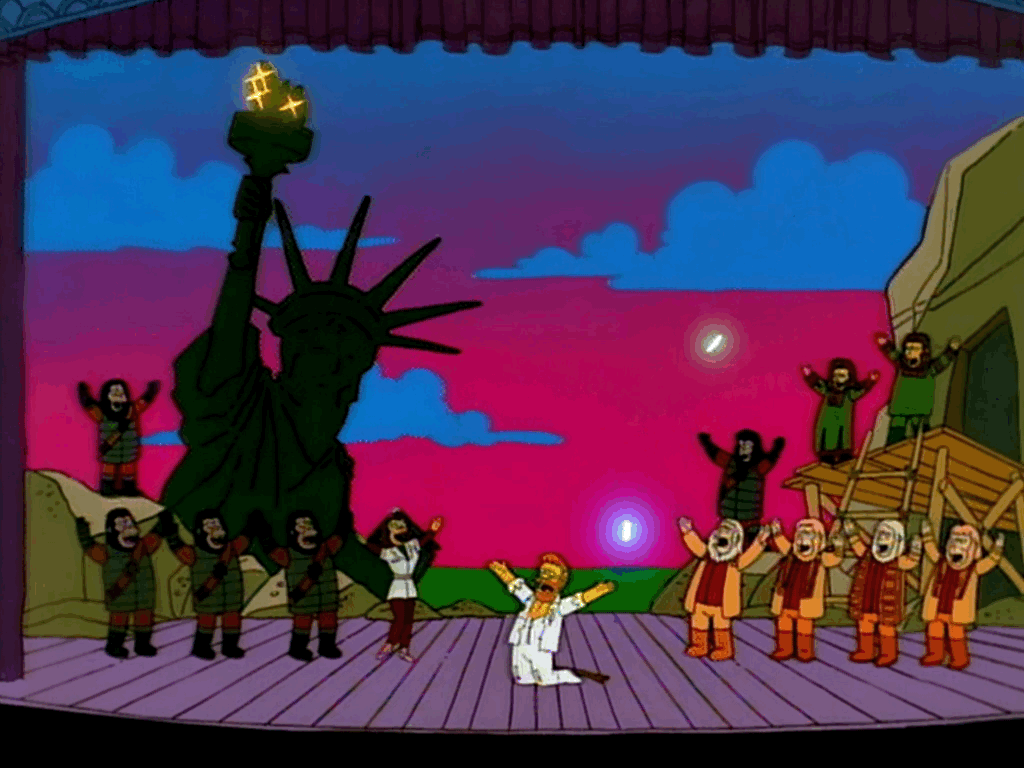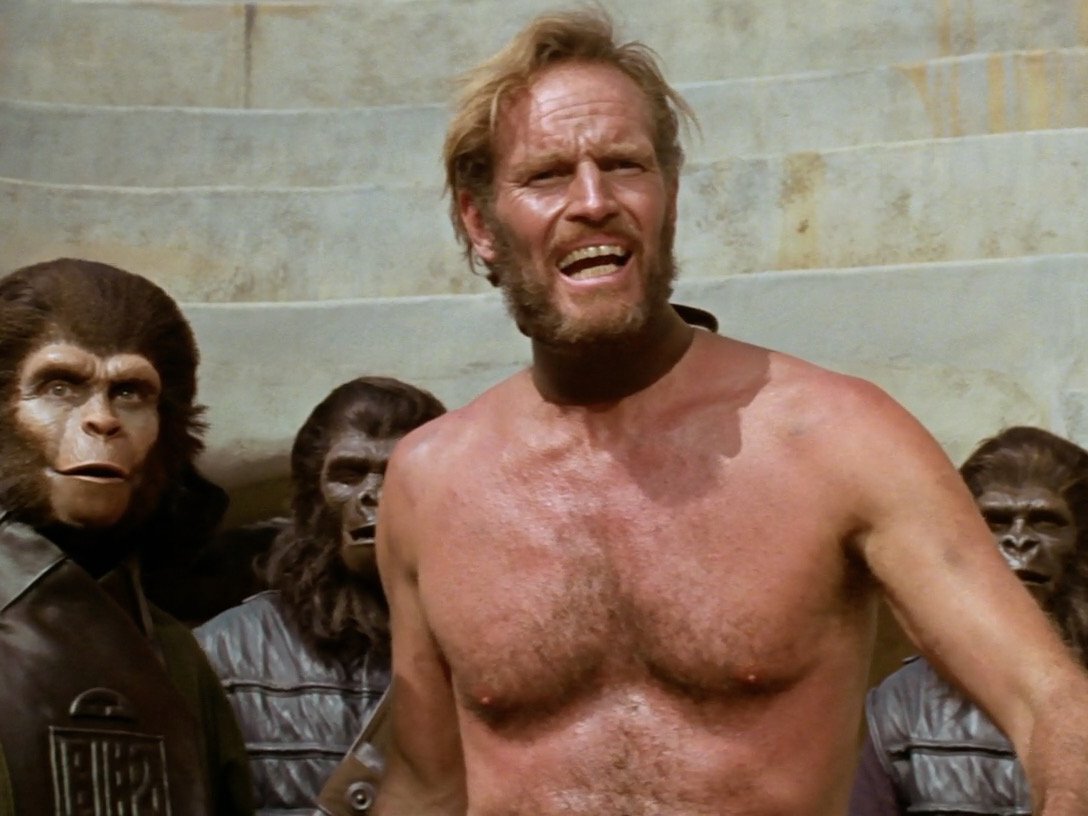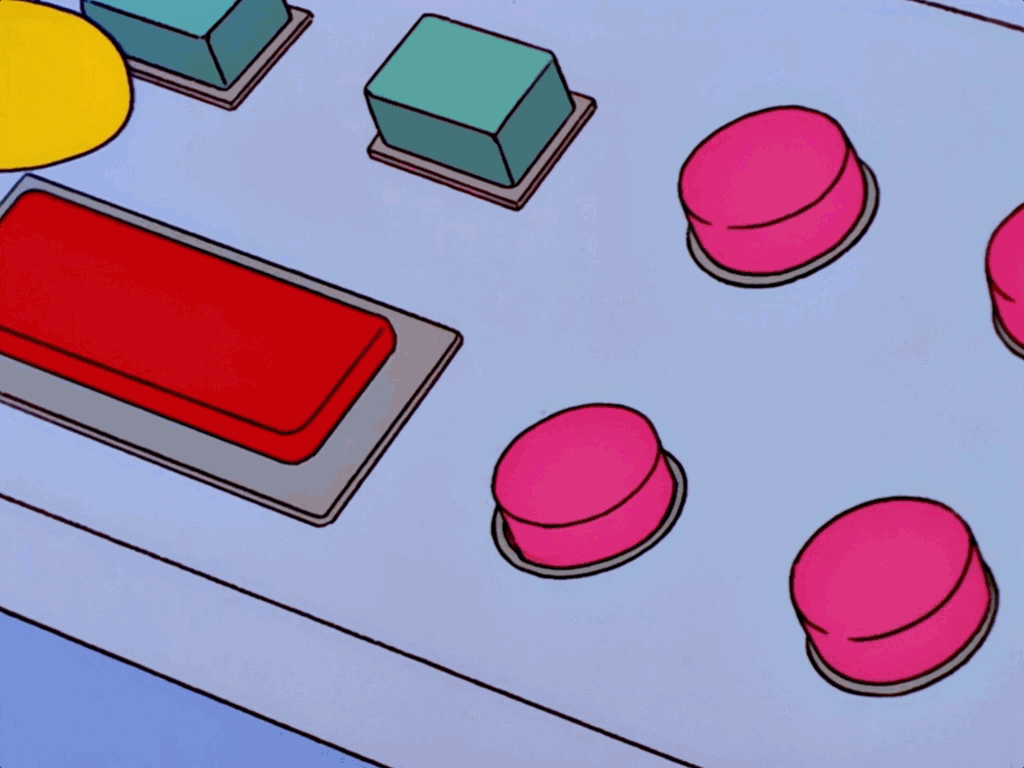Ep. 4 Extras - Return to the Planet of the Apes Returns
Looking for roundups of more Simpsons movie references? After the first season of the Springfield Googolplex podcast, we started including this kind of extra goodness into the show notes for each episode. Check out our full back catalogue for more!
“Man… hunted… caged… forced to mate by civilized apes!”
In episode 4 of Springfield Googolplex (available on Apple Podcasts and Spotify), Nate and Adam explore Planet of the Apes—the 1968 movie, not the planet, and the inspiration for what some have said is the greatest Simpsons parody ever.
Read on to see every reference to Planet of the Apes on The Simpsons, plus some movies to check out if you liked this one, and links to further reading and viewing.
Every Simpsons Reference to ‘Planet of the Apes’ (1968)
By our count, Planet of the Apes has been referenced in 12 episodes of the first 13 seasons of The Simpsons. In fact, you can nearly piece together the entire movie with parodied scenes from over the years (if you skip the movie’s slow start).
Scene Parodies
Rosebud (S5E4): This episode-long parody of Citizen Kane (1941) ends with a flash forward to Mr. Burns’s rediscovery of his beloved Bobo in 1,000,000 A.D. In this future, apes rule over man, much like Planet of the Apes, while the super rich and their lackeys have been transferred into Terminator-like robotic bodies. This scene is noteworthy as the first appearance of a head in a jar in a Matt Groening cartoon (long before Futurama), as well as Alf Clausen’s first parody of the Planet of the Apes’ iconic atonal score.
Bart Gets Famous (S5E12) & Deep Space Homer (S5E15): While it’s debatable whether Homer loudly mourning his son’s transformation into a box is a direct parody in “Bart Gets Famous,” it sure has some Charlton Heston energy. However, Homer’s epiphany in “Deep Space Homer” that the Planet of the Apes was Earth all along is lovingly modeled on Heston’s exact body language in the famous twist ending.
Bart's Girlfriend (S6E7): This episode opens with a parody of the scene where the apes are first revealed in Planet of the Apes, as they brutally capture a group of feral humans. Apparently in Springfield, the parents round up their kids for church with similar nets and choke collars!
A Fish Called Selma (S7E19): The finale of this episode features Troy McClure’s big comeback in the musical adaption of this film, Stop the Planet of the Apes. I Want to Get Off! The first scene we see parodies the moment when Captain Taylor’s throat finally recovers enough that he can speak. In the film, this results in him uttering the famous line, “Get your stinkin’ paws off me, you damn dirty ape!” In the musical, we get a soundalike of Falco’s “Rock Me Amadeus” about Taylor’s nemesis, Dr. Zaius.
A Fish Called Selma (S7E19): The second scene from McClure’s Broadway blockbuster recreates the movie’s haunting twist ending, where Taylor finds out that he crash landed on a post-apocalyptic Earth. However, the musical finale, “Chimpan-A to Chimpan-Z,” strikes a slightly different tone, including fireworks, a kickline of apes, and an unlikely reconciliation between Taylor and Dr. Zaius. (Ironically, we don’t hear yet another version of Heston’s famous monologue here.)
Simpson Tide (S9E19): At the open of this episode, Homer daydreams that he is a captive on "The Planet of the Doughnuts" where he stands trial for eating half the population. This scenes mashes together the kangaroo court scene with a later scene in the city’s amphitheater.
Small Mentions & References
Bart of Darkness (S6E1): Bart watches an episode The Itchy & Scratchy Show titled “Planet of the Aches,” which bares a small resemblance to the movie.
Homerpalooza (S7E24): An angsty teen watching Homer’s cannonball act is wearing a t-shirt with an ape face that looks like an extra from the Troy McClure Apes musical.
Saddlesore Galactica (S11E13): After watching Bart’s horse whip some jockeys, guest star Trevor Denman asks, “Might this be the start of a terrifying planet of the horses?”
Pygmoelian (S11E16): After Moe flubs his audition for a role on a soap opera, he overhears the director explain to the casting agent, "I wanted Mary Ann on Gilligan's Island ugly, not Cornelius on The Planet of the Apes ugly.”
Simpson Safari (S12E17): It turns out that the Jane Goodall-like Dr. Joan Bushwell’s “serious research” is just pictures of monkeys from famous movies, like Planet of the Apes.
The Parent Rap (S13E2): The DJs on KBBL accidentally play a clip of Charlton Heston’s famous line, “damn dirty ape.” Despite the many parodies, this is the only time this line appears in the first 13 seasons of the show.
Did we miss something? Let us know!
Extra Credit
Enjoyed this movie? Here are a few others we would recommend:
Rise of the Planet of the Apes (2011) and its sequels: If you’re like Adam, and didn’t love the sixties pacing and dislikable protagonist of the original, why not try out the reboot/prequel series? Rise, Dawn, War, and Kingdom feature a new era of special effects feats, along with a surprisingly relatable cast of primates.
The Twilight Zone (1959-64): Neither Nate nor Adam were big fans of The Twilight Zone, growing up, but after this, Nate is feeling like he needs to catch up. Planet of the Apes shares DNA with this series through writer Rod Serling, who is known for his philosophical take on genre stories as well as satisfying twist endings—characteristics that Adam thinks work better in half-hour doses.
Soylent Green (1973): Featuring Charlton Heston and a twist ending, Soylent Green plays like a feature-length Twilight Zone episode, much like Planet of the Apes.
Black Mirror (2011-19): Perhaps even more than the latest 2019 revival of The Twilight Zone’s 2019, Black Mirror picks up right where Rod Serling left off. Creator Charlie Brooker updates the premise for modern tastes with full-hour episodes, an emphasis on digital technology, and a wild and wicked sense of humor.
Get Out (2017): If Brooker updates Serling’s concerns about technology for a new generation, the multitalented Jordan Peele provides a much-needed update on the social issues that Serling often explored. Get Out infuses everyday of experiences of racism in America with surreal terror and scalpel-sharp satire.
Plus, here’s some further reading, viewing, and listening we came across in our research:
Ephemera: “Planet of the Apes Pressbook,“ Hunter’s Planet of the Apes Archive, 1968. This promotional booklet offered up our summary of the movie for the podcast.
Comic: “The Milking Of The Planet That Went Ape,” Mad Magazine, No. 157, March 1973. Mad Magazine did it! Long before The Simpsons had a near monopoly on groundbreaking humor, Alfred E. Neuman did, as this parody of Planet of the Apes demonstrates. Many of The Simpsons writers grew up reading Mad, and much like Nate and Adam, were often introduced to movies secondhand this way.
Article: Jesse David Fox, “An Oral History of The Simpsons’ Classic Planet of the Apes Musical,” Vulture, July 13, 2017. Simpsons writers tell the story behind the Troy McClure musical parody in “A Fish Called Selma.” What else could you ask for?
Comic: Rod Serling & Dana Gould, “Planet of the Apes Visionaries,” BOOM! Studios, August 28, 2018. Simpsons writer Dana Gould is such a big fan of Planet of the Apes that he actually wrote a comic book based on Rod Serling’s first crack at the script, where the ape society is more like our own today. Gould also hosts a talk show… as Dr. Zaius.
Video: Broadway.com, “Show Clips - King Kong,” YouTube, November 8, 2018. As Adam points out, a Planet of the Apes musical doesn’t seem so far fetched today (although maybe it didn’t in 1996 either). A few years ago, Adam saw the King Kong musical on Broadway, which isn’t that fa roff.
Article: Herb A. Lightman, “Filming Planet of the Apes,” American Cinematographer, April 17, 2020. This article offers a deep dive into the outstanding make-up, locations, and set design that make Planet of the Apes such a landmark moment in sci-fi, along with the simple cinematography that quietly ground it in reality.
Article: Andrew Gaudion, “Why Planet of the Apes Musical Is The Simpsons Best Parody,” Screen Rant, May 25, 2020. There are a lot of movie parodies to choose from on The Simpsons (that’s the whole premise of the damn podcast!), but is this as good as it gets? Andrew Gaudion makes the case.





